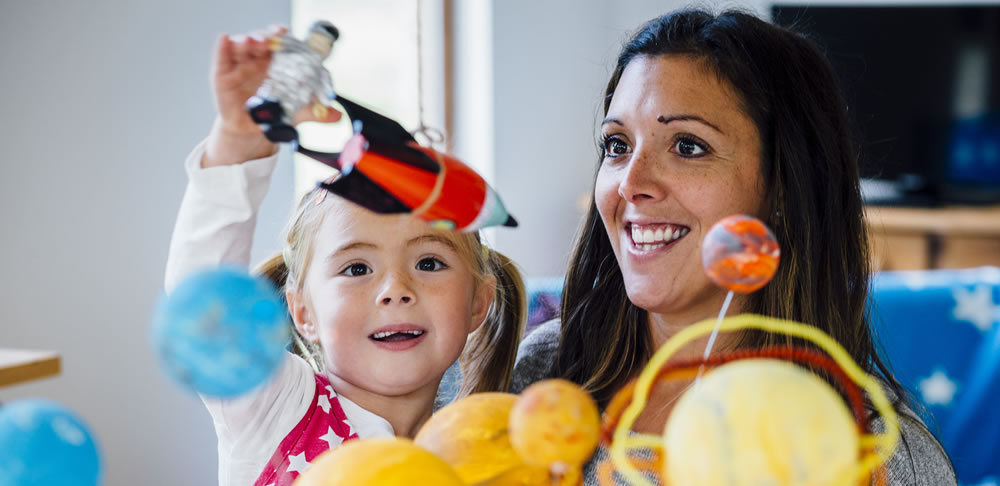Showcasing ‘everyday science’ in the early years | Careforkids.com.au
Published on Wednesday, 29 July 2020
Last updated on Thursday, 11 August 2022

Evidence increasingly supports the importance of nurturing STEM skills in children in the early years, yet some educators may find this overwhelming. Surely you need a science degree to teach children science?
The answer to this is a resounding ‘NO’ according to the Australian Council for Educational Research (ACER), which has published a free set of resources, which aims to improve young children’s scientific understanding by encouraging educators to recognise science not just as subject but as an approach to learning that is present in everyday activities.
ACER’s Science in the early years series was developed to help preschool and Foundation to Year 2 educators incorporate the latest research into science learning and development into their teaching.
“Science isn’t just about learning facts, it is a way of thinking and developing skills so that we can understand the world,” said authors Christine Rosicka and Gayl O’Connor.
In addition, research shows that developing the science inquiry skills of observing, predicting, checking, recording and communicating can teach young children that it is acceptable to fail and that learning can come from making mistakes.
“Young children may be more willing to take risks and to accept mistakes than older children, so it is important that these traits are encouraged and developed from a young age if they are to be further developed as students get older,” said Ms Rosicka and Ms O’Connor.
ACER’s Science in the early years series includes four activities that educators can complete to develop young children’s science inquiry skills and monitor their science learning. These activities – exploring plants, mixing liquids, floating and sinking, and light and shadows – are also appropriate for parents whose children are learning at home.
The series provides examples of developmentally appropriate ways of monitoring young children’s science skills and knowledge, such as discussing stories, and creating drawings and models. Such monitoring enables educators to determine what the child already knows, identify any misconceptions that require correcting and inform what might be explored next.
Ms Rosicka and Ms O’Connor stressed that educators are not expected to know everything about science, but rather be open to working together with children to help them make connections and develop their understandings.
“Educators do not have to be a ‘fount of all knowledge’. They can be a facilitator who collaboratively finds out the answers to the questions children raise,” they said.
Rosicka and O’Connor also emphasise that including science in the early years does not mean educators need to add more to their programs.
‘Developing children’s science inquiry skills are integral aspects of both the Early Years Learning Framework and the Foundation to Year 2 Australian Curriculum,’ Rosicka and O’Connor say.
‘Science is not something that needs to be taught in isolation from other learning areas. If science is cleverly integrated, it can mean that more skills and content can be covered at the same time.’
The Science in the early years series is available to download for free at research.acer.edu.au/earlyyearsscience/
Related Articles

5 fun science experiments for preschoolers | Careforkids.com.au
5 fun ideas to celebrate National Science Week.

Adding fun and complexity to preschool maths
Preschool learning doesn't need to be as easy and research suggests that preschoolers can learn much more complicated maths than we give them credit for.

9 play-based science activities that build STEM skills
8 easy STEM ideas to try at home to boost learning through play based exploration and discovery.
